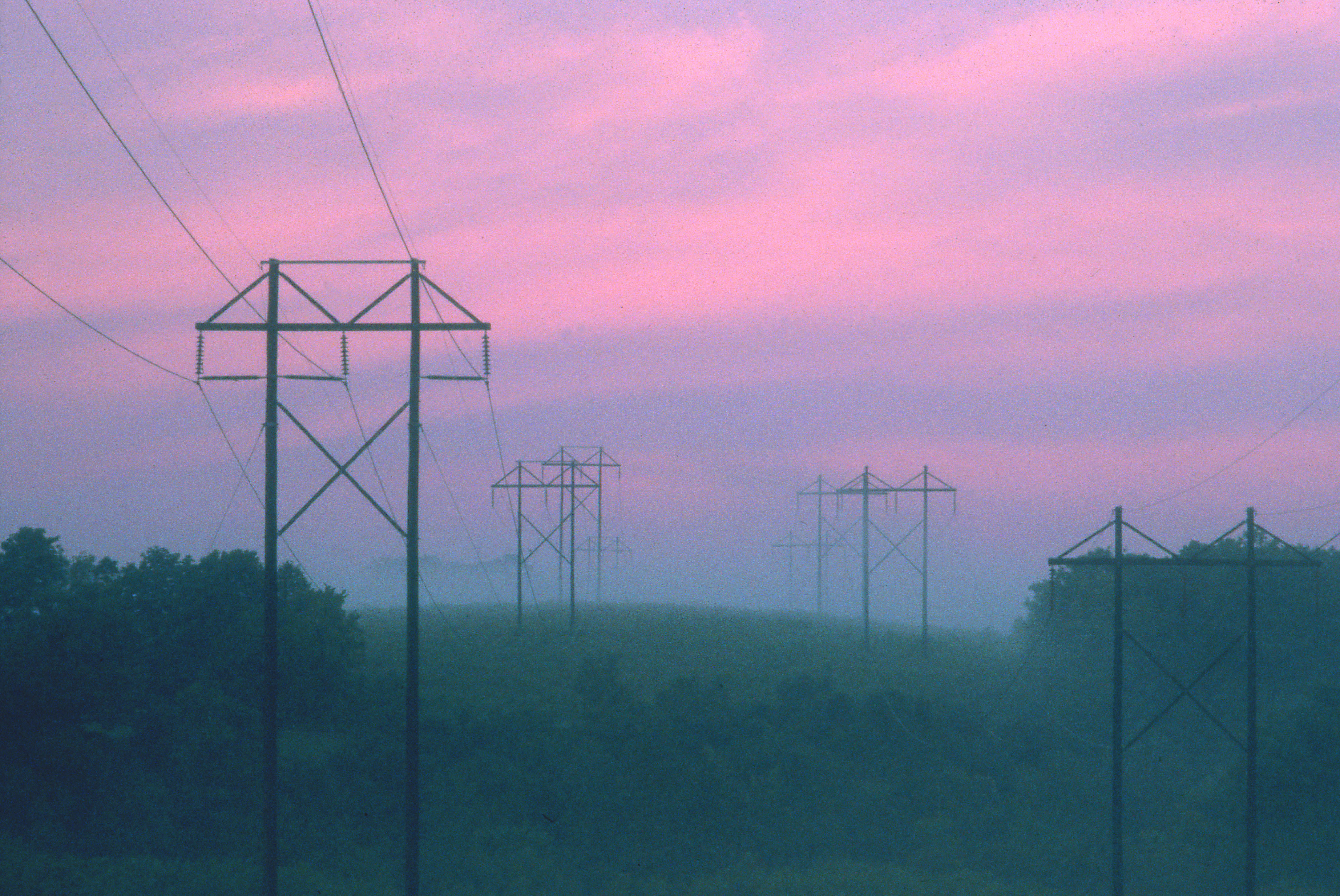I may start doing this every year. I’ve been trying to write some posts about some of the more recent events in politics, but I keep following my arguments into a kind of WTF cul-de-sac. Watching the last four months has been amazing. Not in a good way. Just dumbfounding by any measure. So maybe it will work better if I just do a summary of my impressions of what has happened this past year.
I think I’ll say little about my personal situation. It is what it is. Like many people, the upside is hard to find. To reiterate what I said a couple posts back, though, I am not in dire straits. Uncomfortable, but not desperate.
I should remark on the Lame Duck Congress Marathon of Epic Legislation. I can’t help being impressed. Obama said he wanted Congress to do with Don’t Ask Don’t Tell, to repeal it legislatively, and not have it end up as a court-mandated order. I can understand this, especially given the rightward shift of the judiciary. But the way in which he went about it seemed doomed and certainly angered a lot of people who thought he was breaking a campaign promise. (The puzzling lunacy of his own justice department challenging a court-led effort must have looked like one more instance of Obama backing off from what he’d said he was going to do.) I am a bit astonished that he got his way.
A great deal of the apparent confusion over Obama’s actions could stem from his seeming insistence that Congress do the heavy lifting for much of his agenda. And while there’s a lot to be said for going this route, what’s troubling is his failure to effectively use the bully pulpit in his own causes. And the fact that he has fallen short on much. It would be, perhaps, reassuring to think that his strategy is something well-considered, that things the public knows little about will come to fruition by, say, his second term.
(Will he have a second term? Unless Republicans can front someone with more brains and less novelty than a Sarah Palin and more weight than a Mitt Romney, probably. I have seen no one among the GOP ranks who looks even remotely electable. The thing that might snuff Obama’s chances would be a challenge from the Democrats themselves, but that would require a show of conviction the party has been unwilling overall to muster.)
The Crash of 2008 caused a panic of identity. Unemployment had been creeping upward prior to that due to a number of factors, not least of which is the chronic outsourcing that has become, hand-in-glove, as derided a practice as CEO compensation packages and “golden parachutes,” and just as protected in practice by a persistent nostalgia that refuses to consider practical solutions that might result in actual interventions in the way we do business. No one wants the jobs to go overseas but no one wants to impose protectionist policies on companies that outsource. Just as no one likes the fact that top management is absurdly paid for jobs apparently done better 40 years ago by people drawing a tenth the amount, but no one wants to impose corrective policies that might curtail what amounts to corporate pillage. It is the nostalgia for an America everyone believes once existed that functioned by the good will of its custodians and did not require laws to force people to do the morally right thing. After a couple decades of hearing the refrain “You can’t legislate morality” it has finally sunk in but for the wrong segment of social practice.
I don’t believe the country was ever run by people of significantly higher moral purpose. There have always been two courts along those lines, one comprised of those who know how to aggressively and successfully capitalize and those who set policy and take care of the interests of those who are not so inclined or skilled at the art of fiscal rape. The business sector, while it would like to see itself as made up of morally-inclined people, has always been willing to greater or lesser degrees to ignore moral principle if it became too costly. They were blocked in practice by those in the other camp, who were able to do what they did because the country, frankly, was flush enough to afford principles.
That’s the story, anyway. A bit facile, though there are elements of truth in it. One thing the Left has always been a bit chary of admitting is how big a role affluence plays in the policies it would prefer to see in place. One of the reasons communism always fails historically (just one—I stipulate that there are many reasons communism fails) is that it emerges victorious in poor countries that simply can’t sustain it in any “pure” form. (Russia included. While Russia may be materially rich in resources and potential, it was poorly run, horribly inefficient at any kind of wide distribution, and structurally backward. Marx, for his part, believed Russia one of the worst places to start his “workers’ revolution.” He preferred Germany and, yes, the United States.) This may be why we are so reflexively frightened of communism and its cousin, socialism—all the examples of it we have seen in practice are examples of destitute people, a destroyed middle class and elite stripped of all the material prosperity we value, replaced by a cadre of comfortable bureaucrats. (It suggests that communism is an unlikely system for “raising” standards of living, but might be applicable once a certain level is achieved. This presumes, of course, the other problems with it are solvable.)
At a gathering recently, amid the conversation about all the other ills of the planet, I heard the declaration (again) that we are in a post capitalist world. And I thought (and subsequently said), no, we’re not. Because its natural successor has not emerged. We’re right in the middle of a capitalist world.
The economic history of the 20th Century can be summed up as a contest between two ideas—collectivism and capitalism. Around the fringes of both systems, hybrids developed. It became clear in the 1930s that capitalism is deeply flawed and requires management, not of the sort supposedly provided by The Market, but of the sort provided by an enlightened social structure that can put the brakes on excesses. Communism, it can be equally argued, gave up on any attempt to institute Marxist methodology, opting for a form of autocratic collectivism that lumbered along like a drunk troll for most of the century, never achieving much of anything for the so-called Masses. If the best one could say of the Soviet Union through all that time was that the people were better off than they had been under the Czars, that frankly isn’t saying much. While true, it begs the question why it couldn’t do better than the West.
It could also be argued that during the period between 1930 and the eventual collapse of the Soviet Union, we managed our system in such a way as to guarantee a viable counterexample to the soviet system. Which meant a growing, prospering middle class and progressively more inclusive social justice. Civil Rights progressed as much from the self-evident morality of its assertions as from a profoundly uncomfortable recognition that apartheid systems are too easily compared to what happened in Nazi Germany and continued at a lower activity throughout the world to any and all minority groups. To show ourselves superior to Them, we couldn’t countenance separate but equal nonsense, so there was movement on both extremes—the street and the halls of power.
With the end of the Soviet Union, there was a sharp understanding (valid or not) that on some level “we” had won. Our system proved superior. We were “better” than they were, at least ideologically.
Which apparently for a certain sector meant we could stop fooling around with all these hybrid systems that utilized partial socialist controls and put roadblocks in the way of capitalist excess. Victory meant the aspect that seemed to make us superior would work even better if we stopped pretending we needed regulations. If the rest of the world would just adopt our system, everyone would be better off. We shouldn’t confuse the issue with concessions to non-capitalist ideas.
(You can kind of see this in the Reagan years. It’s obvious in hindsight with the increased spending in military R & D and the 600 ship navy and the development of other technologies under DoD auspices, that the Reagan philosophy—tactic, I should say—was to spend the bastards into penury. There is ample evidence that this is exactly what happened. We forced the Soviet Union to respond with their own increased spending, and this exposed their systemic weakness. While our military spending has rarely gotten anywhere near 10% of GDP, the Soviet Union was never under it. Indeed, toward the end, they were spending more than 30% of GDP on the military, a crushing burden, wholly unsustainable. When all their best tech was brushed aside in the first Iraq War, it must have demoralized them profoundly. The collapse came shortly thereafter.)
Since Reagan we have seen a consistent, grinding war on anything that does not support a strictly market-based capitalist methodology. It has now reached the point where we seem to be cannibalizing our own efforts at social justice in order to fuel an expanding private sector frenzy for…
For what? An expanding private sector frenzy for an expanding private sector? Acquisitiveness for the sake of acquisitiveness? It appears sometimes that we are laying up stores of wealth as if preparing for a siege. But a siege against what?
There are (arguably) two things that have made the United States a model to be emulated. Aside from all the other ideas that inform our sense of national identity, two concrete notions have been at the heart of our success as a country. The first is an idea of social equality. In spite of the suspicions many of the Founders had toward the masses, they embraced a basic belief that individuals are not innately better or worse than each other. This was, of course, an Enlightenment-inspired denial of aristocracies, that birth plays no part in individual merit. Even though this idea was unevenly applied and took couple of centuries to manifest for a majority, it was there from the beginning. The people had to live up to the idea, which is usually how such things transpire. It was a powerful idea and would have come to little if not for the second idea, which is that we are entitled to be safe in our property. That no one may take what we legally possess away arbitrarily and we have a right to defend our belongings in court and by legislation. This has allowed for the eventual development of a large and politically powerful middle class which, to greater or lesser degrees, is socially porous, largely because of the first idea. (Even in the worst days of segregation there have been wealthy blacks, and often in sufficient numbers to constitute a parallel middle class and entrepreneurial resource.)
In fits and starts, this has worked well for us over two hundred plus years. Not without cost, though. Such as those times when the two ideas turn on each other and conflict.
This has not been the only period when that has happened. Our history is strewn with the corpses of such conflicts. We have see-sawed back and forth between them. Usually the property side of the conflict wins. When the equality side wins, though, the gains are amazing.
So what about 2010?
It would seem to be a mixed bag, tilted (naturally) toward the property side. But then the last-minute repeal of Don’t Ask Don’t Tell would seem to be a check in the justice column. Overall, the deployment of forces seem clear enough, and the skirmishes have taken tolls on both sides. But what’s the goal? What, in the parlance of wartime diplomats and theorists, does victory look like?
Globalization has brought about a fundamental shift in corporate culture, at least in the United States, which has made explicit what had always been potential and implicit at a certain level, namely that capitalist endeavor is not patriotic. The foregoing of as much profit as possible is not consistent with nationalist sympathies and although I’m sure many an entrepreneur would like to think otherwise, the track record since Reagan has been clearly in the other direction. The outsourcing of American jobs alone should serve as example for this.
What has risen in place of substantial people doing the right thing for their country even if it costs them is a severe kind of quasi-religious patriotic substitute which at base serves to tell those who are paying the cost of this fact that it is their patriotic duty to “man up” and live with it and to vote largely against their own self-interest in order to preserve a distorted idea of Americanism. We have seen a resurgence of a social Darwinism that was never valid and lost ground during the heyday of middle class enlightenment in the post World War II booms. The G.I. Bill underwrote a massive educational effort that gave people who never before had access the intellectual tools to recognize nonsense when they saw it and act against the norm, pushing back at the major corporations and a business ethic that required servitude rather than equitable participation on the part of the labor force. Two things have worked to undo those gains. The first was the matriculation of those very middle class successes into the positions of power that traditionally would have kept them out and over time they have become the people they once worked against. The other has been a severe and consistent gutting of liberal education.
At the aforementioned party there were gathered a number of academics. I heard a lot of complaining about cutbacks and one in particular was going on about how her department was under siege. One need not look far to see that universities and colleges are all scrambling for funding and a lot of what seems to be on the chopping block are courses that fall under the classical liberal arts. If the course is not geared toward making a buck for the student immediately upon graduation, the sentiment seems to run, then what good is it?
But it’s not just that. Even legislatively we have seen assaults on the sciences. The most recent is this from Oklahoma. State Senator Josh Brecheen has introduced legislation to force Creationism to be taught in public schools, claiming that in the interest of teaching science “fully” all viewpoints should be taught or both should be removed. This is hardly the first of these, nor will it be the last, but it shows a clear trend that is profoundly anti-intellectual, consistent with a tradition is America that derides education and promotes a faith-based approach to the world. By faith-based I do not mean necessarily religious, although that is certainly a large part of it. No, I mean a kind of fatalistic nationalism that suggests that simply because we are who we are we need nothing more. Americans are just naturally superior. In this model, education—too much education—erodes that essential nature and renders us susceptible to all manner of non-American ideas.
There is a fundamental idiocy in this attitude. It also seems counter to every other aspect of essential Americanism, basically that one never settles, that more is always preferable, that excess is the basis for sufficiency. How does less education square with any of this?
Back in the heyday of the great Red Scares, a political tactic evolved that equated intellectualism—mainly academic intellectualism—with Marxism and thus rendered learning suspect. Certainly learning has a leftist character, Liberalism being an apparent property of education. While this is not true in the specific (I defy anyone to make the case that William F. Buckley was uneducated, anti-intellectual, or even provincial), it does seem that the Right is represented by a less-than-stellar cadre of the intellectually challenged. The spokespeople for the Tea Party are a singularly deficient lot, not least of which is Sarah Palin, who manages to declare her contempt for the intellect every time she makes an utterance. The majority of frontline assailants on education are all self-styled conservatives and the debacle of school board absurdities and text book crisis sometimes seems to spring wholly from Texas and its consistent statements of solidarity with grassroots stupidity.
It is more difficult to generalize when one knows more about a subject. Ignorance is the benefactor of bigotry, stereotyping, and ideological myopia. To preserve their hegemony over what they perceive as the true American landscape, it behooves the Right to curtail education wherever possible.
Why? How does this make any kind of sense?
It makes sense in exactly the same way that the marrow-deep rejection of Evolution by many among this same group makes sense, as a way of denying change. To freeze an essential identity in amber seems all important. To draw a circle around a set of defining characteristics and say “this is what it means to be an American” seems the chief aim of the new nativists. And anyone who doesn’t fit within those definitions or challenges their patriotic relevance is to be cast out, cut off, rendered mute. That would be anyone who might suggest business as usual has to change.
I see this as a long arc of historical trending. After World War II, the United States was in an enviable position as a kind of savior of civilization. We were the envy of much of the world, even if much of the world resented us and denied that it very much wanted to be us. As long as there was a clear enemy—the Soviet Union and a perceived threat of encroaching communism—we maintained an identity for ourselves that acted as a kind of ideological and social glue. Whatever else we may disagree with among ourselves, we knew we didn’t want to be Them.
But that’s gone now. The decade of the 1990s was a period of adjustment. There were problems, but not the kind of iconic Good vs. Evil paradigms that had driven us for half a century. It was a time when we should have realized that what we needed to do was learn to manage, not dominate. And in order to do that effectively, we had to open our minds to wider understanding.
Which, of course, let in all manner of ideas and influences that are Not American.
2010, it seems, was a year in which the lineaments of the coming conflict were more clearly defined. Issues over immigration, secrecy, taxation, distribution of wealth, and civil rights are played a part across the battlefield. Overshadowing all else, though, is the financial crisis and the unemployment rate. Congress was blamed for not fixing it, but really, what could they do? Even if Obama had stood firm about the Bush tax cuts and forced Congress to let them expire on the wealthy, exactly what would that have done for the employment problem? The Republicans keep saying that tax cuts fuel investment, but in the last 30 years we have not seen that to be the case, at least not in terms of people. That extra money finds its way into dividend checks and off-shore accounts, not in higher employment. The other claim is that small business is the real generator of higher employment and that seems to be true, so how does that square with cutting taxes on the top two percent? It doesn’t. This is a class issue. That extra tax revenue would go toward paying down the deficit, but it would likely not add a single job.
There is a savage equation in business. A company has little control over most of the expenses incurred—rent, material, energy, all that is fairly rigidly fixed. The only expense where most businesses have any kind of flexibility is labor. Either cut salaries or cut numbers of employees. For small to medium-sized businesses, this is a fairly straightforward calculus—one employee equals salary plus maybe health benefits and the concomitant taxes. For larger firms, it’s more complicated—one employee equals salary plus health benefits plus ancillary insurance benefits plus retirement package plus bonus packages plus ancillary taxes. It’s a larger sum at a certain level. (Consider auto workers, who may have been making upwards of 60K in salary, but received an addition 50 to 70K in perks, pension promises, etc.) Outsourcing to compete globally becomes a matter of serious money. Even if you take away the egregious compensation packages for upper management, these numbers remain and they are a real concern.
This a direct result, however, of the kind of civilization we run. We are a consumer culture. The More More More demand to keep the economy expanding has resulted in exactly this kind of problem. In order to provide the goods that fuel that growth at a cost people can afford, costs of manufacturing must be kept down. But we’ve been buying the whole world’s production at some level for 50 years now and in order for us to have the money to keep doing that, we have to derive income from somewhere that enables us to maintain, and if the world cannot afford what we make or offer…
Which does not, of course, justify the pillage of American industry that we have seen take place or the obscene transfers of wealth from the public sector to private hands. This has all been done in the name of self-preservation by those who, as I suggested at the beginning of this, are no longer able to afford their otherwise self-proclaimed patriotism. They have somehow defined themselves as America and for all the rest of us? Well, we are welcome to make our own fortunes if we can, but they are removing their sense of responsibility from us.
Before I go on, one other number must be added to the above calculus. The Census has just come out. We have almost 309 million people here now. By comparison, in 1970 there were a bit over 203 million. I chose 1970 because that was a year in which one could clearly see American power and prosperity across the greatest extent of the population. American cars were still the top sellers, American industry still the envy of the world, the American worker the highest paid, most skilled, our educational system on its way to becoming the jewel in the crown. We had just put men on the moon, the future looked to be imminent in so many sparkling and wondrous ways, and we were experiencing a surging liberal commitment to inclusiveness. Nixon was about to create the EPA and the NEA. In spite of the blight of Vietnam, we were doing great. The top 5% economically owned only 14% of the wealth.
Add an additional hundred million people to that, all of whom have had the same expectations of increasing wealth and prosperity, and ask yourself if it is reasonable to have expected anything other than disappointment. Numbers matter.
The world has changed. Easy to say, difficult to understand why that makes a difference. In the face of everything that has changed since 1970, does it make sense to try to maintain a national identity rooted in the 1940s?
I have some thoughts on that score, but I think I’ll save them for another post. I will say that I do not see a slide into oblivion as inevitable. But to prevent it will require something progressives have lacked since Reagan—a clear vision.








